World News
1-Iran Issues Dire Warning to Israel and Defies Trump on Nukes: “We’re Ready to Strike Deep Inside”
Iranian President Masoud Pezeshkian declares military readiness for war with Israel and rejects Donald Trump’s claim that Iran’s nuclear program is finished

Tensions in the Middle East just took a sharp and dangerous turn.
In a defiant and fiery address, Iranian President Masoud Pezeshkian has warned that Iran is prepared for full-scale war with Israel if provoked, signaling one of the most direct threats in recent memory. In a report carried by Al Jazeera, Pezeshkian declared that Iran’s armed forces are ready to strike “deep inside Israel” in response to any military escalation.

“We are fully prepared for any new Israeli military move,” said Pezeshkian. “Our armed forces are ready to strike deep inside Israel again.”
The sharp rhetoric comes amid growing instability in the region and renewed concerns over Iran’s nuclear ambitions. Pezeshkian’s statement isn’t just military posturing—it’s a public message that Iran sees confrontation with Israel as imminent and potentially unavoidable.
Not Hopeful About Ceasefire
Pezeshkian expressed skepticism about the potential for a ceasefire, stating bluntly:
“We are not optimistic. That is why we have prepared ourselves for any possible scenario.”
He accused Israel of initiating harm, while asserting that Iran had retaliated, describing the situation as a balance of retribution. “Israel has harmed us, and we have also harmed it,” he said, referring to ongoing clandestine operations, cyberattacks, and proxy conflicts in Syria, Lebanon, and beyond.
This escalation comes in the wake of months of tension along the Israeli-Iranian axis, including attacks on Iranian military advisers in Syria and drone strikes targeting Israeli-linked cargo ships. Pezeshkian’s warning implies that Iran is ready to move from covert operations to direct military engagement if necessary.
Table of Contents
Nuclear Program Far From Over, Says Iran
Perhaps even more startling was Pezeshkian’s direct rejection of Donald Trump’s recent remarks that Iran’s nuclear program had been “dismantled.” Pezeshkian scoffed at the former U.S. President’s assertion, stating that Iran’s nuclear knowledge is “not in the facilities—it’s in the minds of our scientists.”
“Trump says that Iran should not have a nuclear weapon, and we accept this,” Pezeshkian said. “Because we reject nuclear weapons—this is our political, religious, humanitarian, and strategic position.”

Still, the Iranian leader left no doubt that the country’s nuclear ambitions are alive and deeply embedded within its national identity. The message was clear: Iran will not bow to Western pressure, sanctions, or threats.
Diplomacy—But Not at Any Cost
While Iran appears open to dialogue, Pezeshkian clarified that any future negotiations would need to be conducted under a “win-win” framework, without threats or ultimatums.
“We believe in diplomacy, but we will not accept threats and dictates,” he said.
This is a subtle jab at both the U.S. maximum pressure policy and Israel’s shadow war tactics. Pezeshkian is drawing a red line: Iran may sit at the negotiation table, but only on equal footing.
This positioning is a calculated move. With growing international pressure, economic sanctions, and a restless public, the Iranian regime is signaling that military defiance and diplomatic sovereignty remain its top priorities.
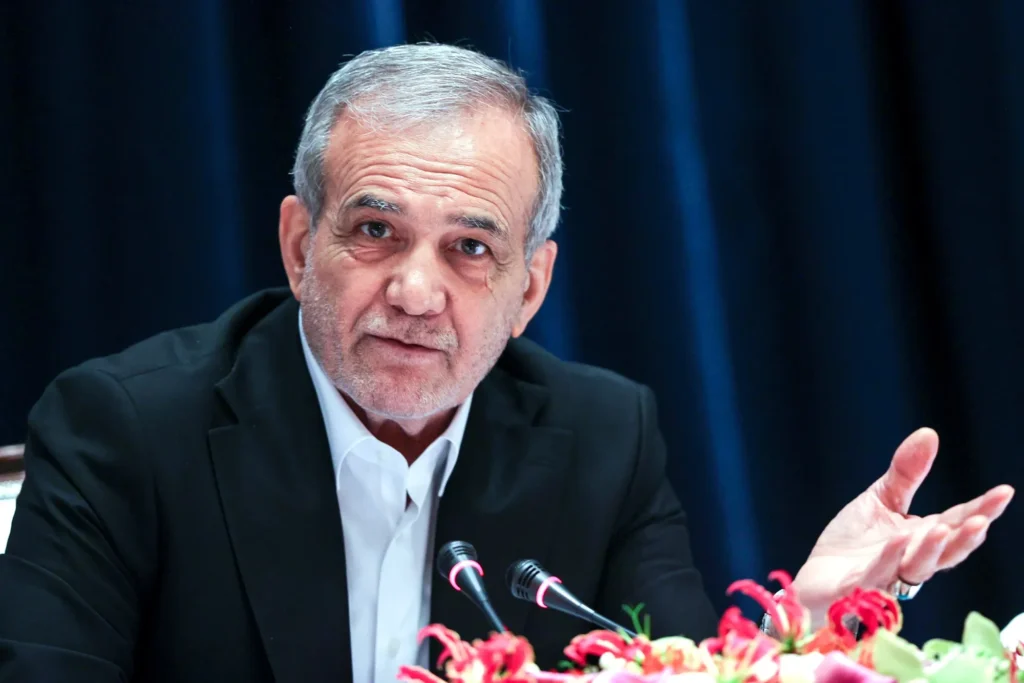
Global Reactions and the Road Ahead
International reaction has been swift and measured. The United Nations called for restraint, while European Union officials expressed concern over Iran’s aggressive posturing. Meanwhile, Israel has yet to issue a direct response, though Israeli defense sources told local media that they are “monitoring the situation very closely.”
Security analysts believe the remarks are part of Iran’s psychological warfare strategy—reminding Israel and the West that any strike will be met with overwhelming response. But others worry that such threats can quickly spiral into unintended conflict, especially with Iran-backed groups like Hezbollah already on edge in the region.
Why It Matters Now
This moment could mark a significant pivot in U.S.-Iran-Israel relations. With Trump potentially preparing for another presidential run and Congress divided on Middle East policy, Pezeshkian’s public statement is as much aimed at Washington as it is at Jerusalem.
It also highlights the deep fragility of the so-called “nuclear freeze” narrative, suggesting Iran’s program is more resilient and decentralized than ever before.
For more Update http://www.dailyglobaldiary.com
World News
Donald Trump says he’s in ‘Great Shape’ before Walter Reed Visit — ‘Doctors are Going to Be Very Happy
Ahead of his scheduled checkup at Walter Reed Medical Center, Donald Trump insists he feels “fantastic” and ready to prove that his health is “better than ever.”
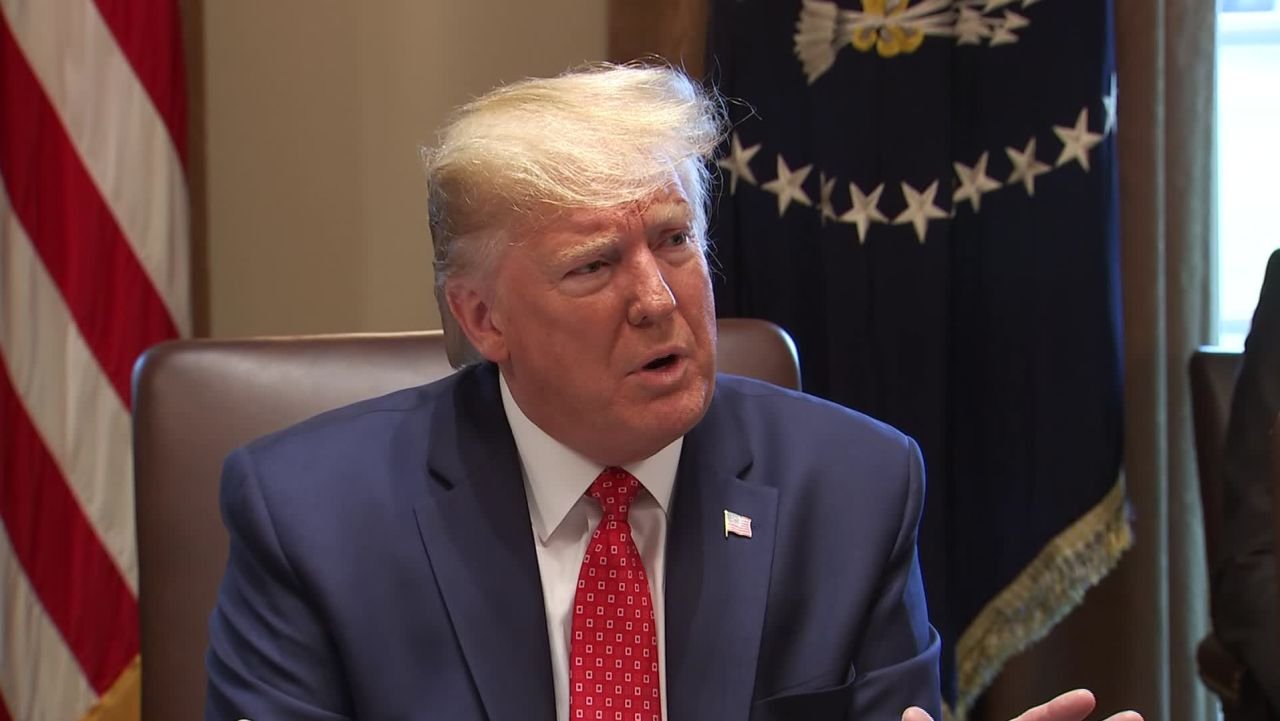
Former U.S. President Donald Trump is once again in the spotlight — this time, not for politics but for his health. As he prepares to undergo a full physical examination at Walter Reed National Military Medical Center, Trump says he’s feeling “great” and “in terrific shape,” brushing aside any speculation about his well-being.
The medical visit, scheduled for this week, marks his second examination at Walter Reed this year, prompting curiosity among both supporters and critics. But Trump, known for his trademark confidence, has assured everyone that the results will speak for themselves.
“I feel better now than I did twenty years ago. The doctors are going to be very happy,” Trump told reporters outside his residence.
ALSO READ : Shocking Gaza Footage: Israeli Tanks Fire Near Civilians Hours After Ceasefire Deal With Hamas — Here’s What Happened
A Routine Check or Political Signal?
While Trump described the upcoming exam as a “routine health check,” political observers see it as more than just that. With his re-election campaign reportedly gaining momentum and rallies planned across key states, the 78-year-old former president’s health has naturally become a point of public interest.
According to sources close to his campaign team, Trump’s medical visits are part of his strategy to demonstrate stamina and vitality — key traits he often touts as evidence of his ability to “lead again.”
“President Trump has always prided himself on his energy and resilience,” a campaign aide told Daily Global Diary. “He’s working long hours, meeting donors, and preparing for events — this checkup is just another step to reassure supporters that he’s as strong as ever.”
History of Walter Reed Visits
Walter Reed Medical Center, located in Bethesda, Maryland, has long been the primary hospital for U.S. presidents. Trump made multiple visits there during his term, including one in 2019 that drew widespread media attention after reports of an unannounced medical check.
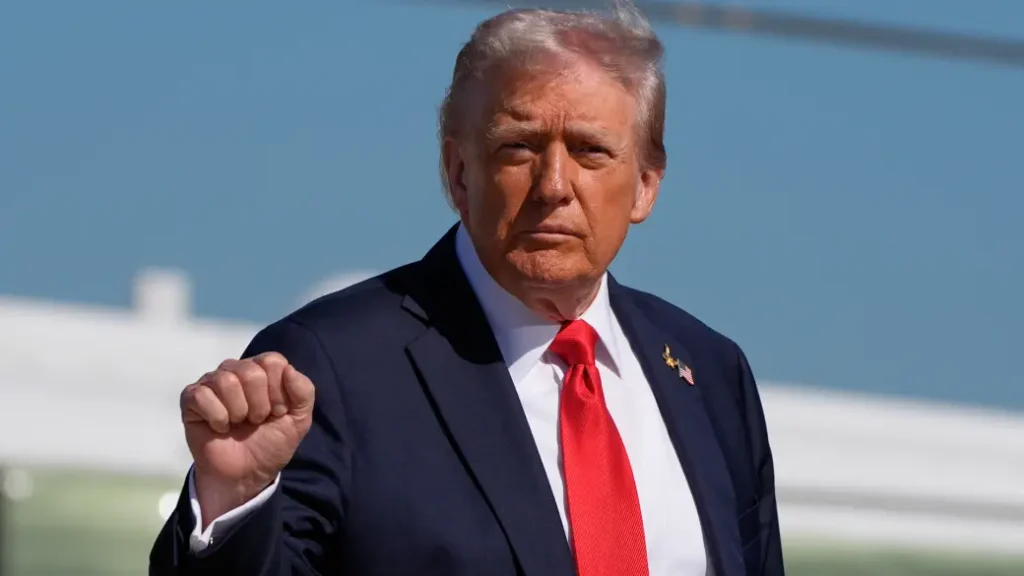
At the time, the White House clarified that the visit was “routine,” though speculation over his health briefly dominated news cycles. Later, in 2020, when Trump contracted COVID-19, he was admitted to Walter Reed for several days before making a public appearance to show recovery.
Since then, Trump has repeatedly maintained that his health remains “perfect,” often crediting what he calls his “good genes” and “active lifestyle.”
Doctors’ Assessment Expected Soon
The current examination will reportedly include standard tests such as cardiovascular screening, body weight, and neurological assessments. Trump’s personal physician, Dr. Bruce Aronwald, who has previously released glowing health summaries, is expected to accompany him during the process.
“President Trump remains in excellent physical and cognitive condition,” Aronwald said earlier this year. “His results continue to meet and exceed the benchmarks for men of his age group.”
Still, the visit is expected to draw major media attention, as Trump’s health remains one of the most closely watched aspects of his post-presidential life — especially with speculation swirling around his political comeback.
Social Media Buzz: ‘Trump Looks Younger Every Year’
Unsurprisingly, Trump’s health announcement has stirred a wave of reactions online. Supporters flooded his Truth Social page with messages of encouragement, praising his vitality. One user wrote, “President Trump looks younger every year — unstoppable energy!”
Critics, meanwhile, questioned the timing of the visit. “Another Walter Reed trip right before campaign rallies? Sounds strategic,” one political commentator wrote on X (Twitter).
Regardless of the speculation, Trump remains unfazed. “The fake news will make something out of nothing,” he quipped during a recent speech in Florida. “I’ll come back from Walter Reed stronger than ever. Watch.”
‘Strong, Fit, and Focused’: A Message to His Base
For Trump, who has long used personal image as a cornerstone of his brand, physical fitness is not just a health matter — it’s a political statement. His public appearances often feature moments of deliberate vigor: climbing podium stairs briskly, energetic gestures, and his signature confident stride.
Political analyst Steve Cortes noted, “Trump’s energy is a contrast point. He knows optics matter — especially against younger rivals and current leaders.”
Whether this latest medical exam is routine or strategic, it’s clear that Trump intends to project one message: he’s still in command — physically and politically.
As the nation waits for an official medical summary, one thing is certain: Trump’s upcoming Walter Reed visit has already turned into a headline-making event. And true to his persona, the former president doesn’t seem to mind one bit.
“They’ll find out,” Trump said with a grin. “I’m in better shape than most of these guys half my age.”
World News
Donald Trump’s Gaza Peace Plan Moves Forward as Israel Approves Hostage Deal: ‘All Hostages Will Be Released Very Soon
Israel’s Cabinet gives the green light to the first phase of Donald Trump’s Gaza peace plan, marking a breakthrough deal that includes the release of Hamas-held hostages in exchange for Palestinian prisoners.
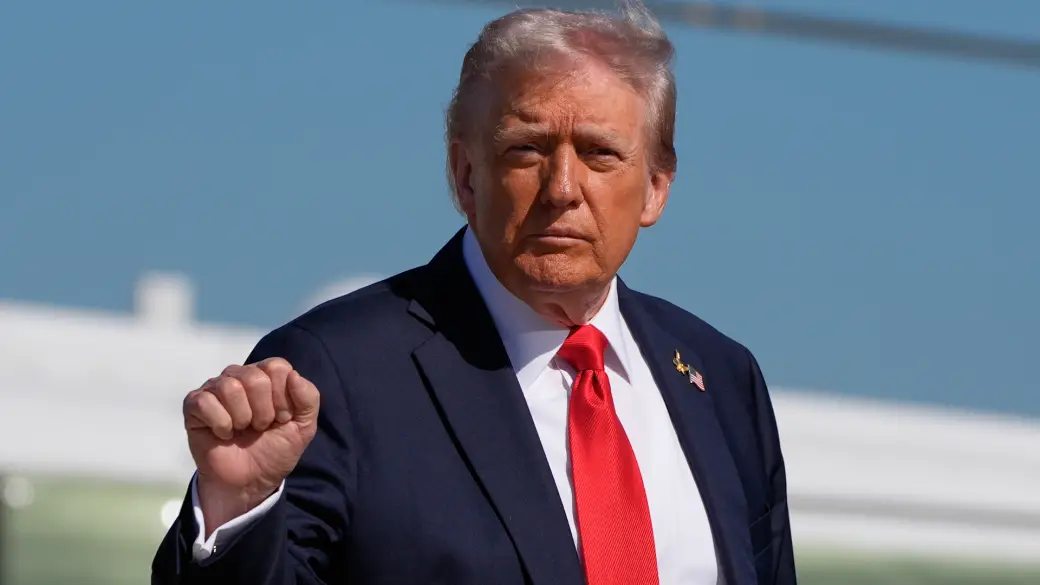
In what could mark a turning point in one of the world’s most complex conflicts, the Israeli government has officially approved the first phase of former U.S. President Donald Trump’s proposed Gaza peace plan — a move that will see the release of hostages held by Hamas in exchange for Palestinian prisoners.
The decision was made following a lengthy Cabinet session led by Prime Minister Benjamin Netanyahu on October 9, where Trump’s advisers Jared Kushner and Steve Witkoff presented the framework. The plan, according to Israeli officials, represents “a framework for the release of all of the hostages – both living and deceased.”
ALSO READ : Shocking Gaza Footage: Israeli Tanks Fire Near Civilians Hours After Ceasefire Deal With Hamas — Here’s What Happened
“This approval brings us one crucial step closer to peace,” an Israeli government spokesperson said after the Cabinet vote. “The Prime Minister’s Office has confirmed that all necessary measures for the exchange are now being implemented.”
The announcement comes just one day after Trump declared on Truth Social that Israel and Hamas had agreed to his proposed peace framework. “This means that ALL of the Hostages will be released very soon, and Israel will withdraw their Troops to an agreed upon line as the first steps toward a Strong, Durable, and Everlasting Peace,” Trump wrote, sparking intense international reactions.
A Deal Two Years in the Making
The conflict in Gaza, which has stretched for more than two years, has witnessed devastating losses on both sides. According to reports from the Israeli Defense Forces (IDF), dozens of hostages remain in Hamas custody, many of whom were captured during earlier stages of the conflict.
Trump’s peace initiative — sometimes referred to by insiders as “The Abraham Legacy Plan” — seeks to end hostilities through phased exchanges, gradual troop withdrawals, and the creation of new administrative zones in Gaza under international supervision.
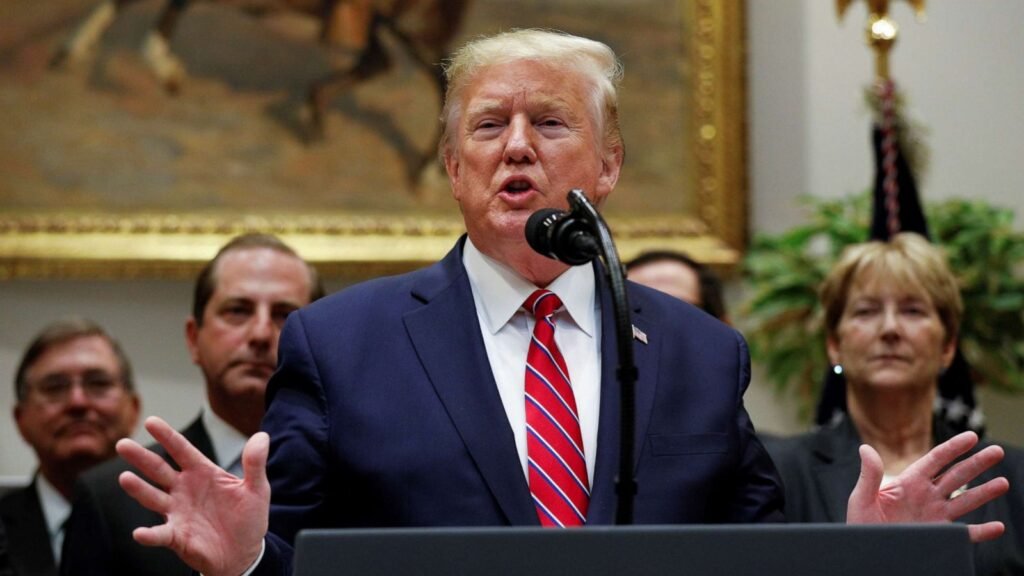
Sources close to the discussions told Daily Global Diary that this first phase focuses on humanitarian outcomes, including prisoner exchanges and the safe return of displaced civilians. The broader plan aims to stabilize the region through “sustained diplomacy and security guarantees.”
Behind Closed Doors: Netanyahu’s Balancing Act
The approval wasn’t unanimous. Several Israeli ministers reportedly expressed skepticism about the timeline and the trustworthiness of Hamas in upholding their end of the bargain. However, Netanyahu—who has faced mounting domestic pressure—emphasized that this framework was “Israel’s best opportunity to bring every hostage home.”
Political analysts note that Netanyahu’s decision was likely influenced by both domestic sentiment and international pressure. “Israel’s leadership has reached a point where political calculus meets humanitarian urgency,” said one Jerusalem-based policy expert.
Trump’s personal involvement, meanwhile, has reignited debates about U.S. influence in Middle East peacebuilding. While critics call the move a political maneuver ahead of the 2028 U.S. elections, supporters argue that Trump’s direct diplomacy has achieved what others could not.
Global Reaction: Hope and Hesitation
World leaders have cautiously welcomed the announcement. The United Nations, European Union, and United States State Department issued joint statements acknowledging the “potential significance” of the deal while stressing the importance of its full implementation.
Humanitarian organizations, including the Red Cross, are now preparing to facilitate the exchange process. “This marks a rare moment of consensus,” said a Red Cross official in Geneva. “If carried out effectively, it could save countless lives.”
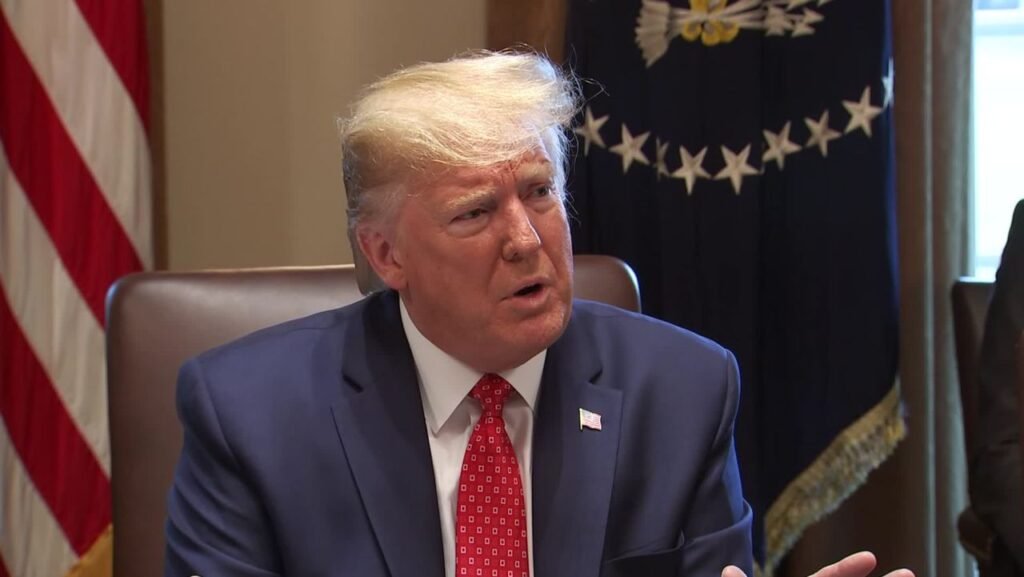
Yet, concerns persist. Skeptics warn that without structural guarantees, this could devolve into yet another fragile truce. “Peace is not a paper—it’s practice,” said a Palestinian analyst from Ramallah. “We’ve seen many plans collapse because the trust deficit is just too deep.”
Trump’s Comeback Moment
For Donald Trump, this peace plan could be a defining moment in his post-presidency political narrative. The former President’s return to the diplomatic spotlight has been marked by self-assurance and a signature blend of optimism and controversy.
“This is what leadership looks like,” Trump said in a brief interview outside his Mar-a-Lago residence. “Peace through strength, through courage, and through fairness. The world is tired of endless wars—and so am I.”
His close adviser Jared Kushner, architect of the Abraham Accords, echoed the sentiment. “This isn’t just about politics—it’s about humanity,” Kushner said.
The Road Ahead
As Israel prepares for the logistical phases of the exchange, expectations are high but tempered by experience. The deal’s success will likely hinge on trust, verification, and the role of mediating nations like Egypt and Qatar.
The Israeli Defense Forces (IDF) are expected to oversee the secure transfer of hostages, while international observers monitor compliance on both sides. If successful, the next phase could include talks on border demilitarization and reconstruction efforts in Gaza.
While it’s far too early to declare victory, the approval of this plan signals a potential new chapter in Middle Eastern diplomacy — one where long-standing hostility might give way to cautious hope.
As one senior Israeli official put it: “History has seen many false dawns. But maybe, just maybe, this is the one that breaks the cycle.”
World News
Shocking Gaza Footage: Israeli Tanks Fire Near Civilians Hours After Ceasefire Deal With Hamas — Here’s What Happened
Just hours after Israel and Hamas agreed to a U.S.-brokered ceasefire, disturbing footage captured Israeli tanks firing near civilians in Deir al-Balah, raising fears that peace may already be unraveling.
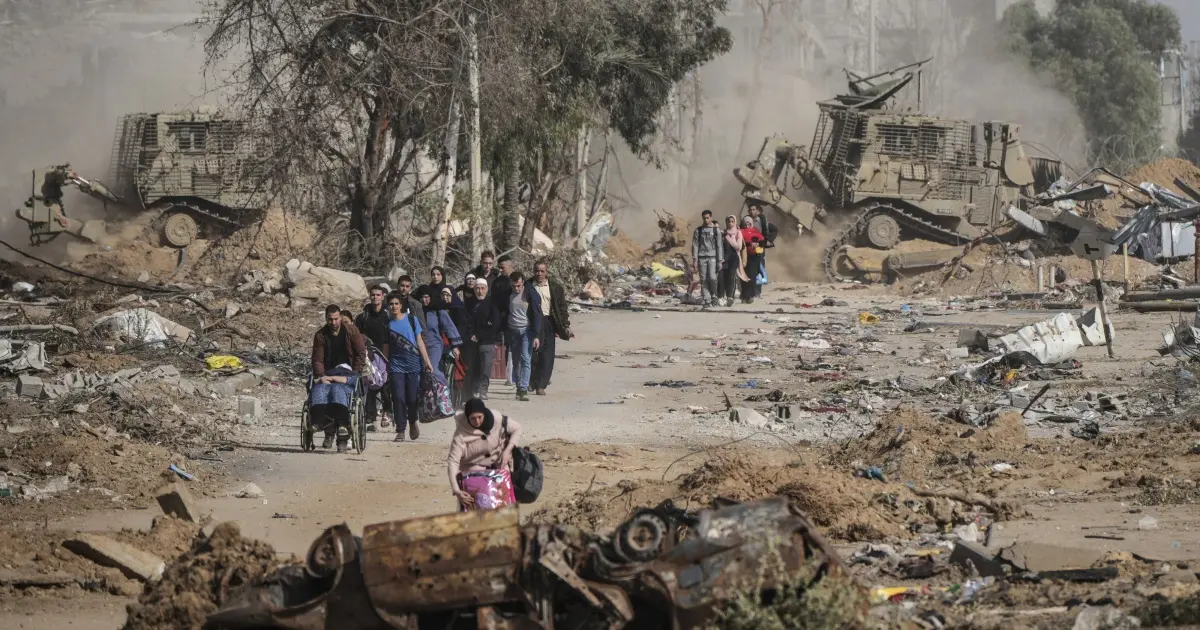
The promise of peace in Gaza was overshadowed by chaos on Thursday, when Israeli tanks were seen firing on a crowded coastal path near Deir al-Balah, moments after a highly anticipated ceasefire deal between Israel and Hamas was announced.
According to Reuters footage filmed at 0939 GMT, explosions and plumes of smoke erupted dangerously close to dozens of civilians walking near the shoreline. The footage — now circulating widely on social media — shows people running for cover amid the shelling, even as both sides had agreed to halt fighting under the first phase of a U.S.-backed peace plan.
The shocking incident comes mere hours after Donald Trump, the President of the United States, announced that Israel and Hamas had “signed off” on the framework for a temporary ceasefire aimed at pausing the brutal two-year conflict in Gaza.
“This is the first concrete step toward ending one of the world’s longest and most tragic wars,” Trump said from Washington, D.C., emphasizing that the truce includes humanitarian provisions and hostage exchanges.
However, Thursday’s events have raised serious questions about whether both parties are fully committed to the deal’s terms.
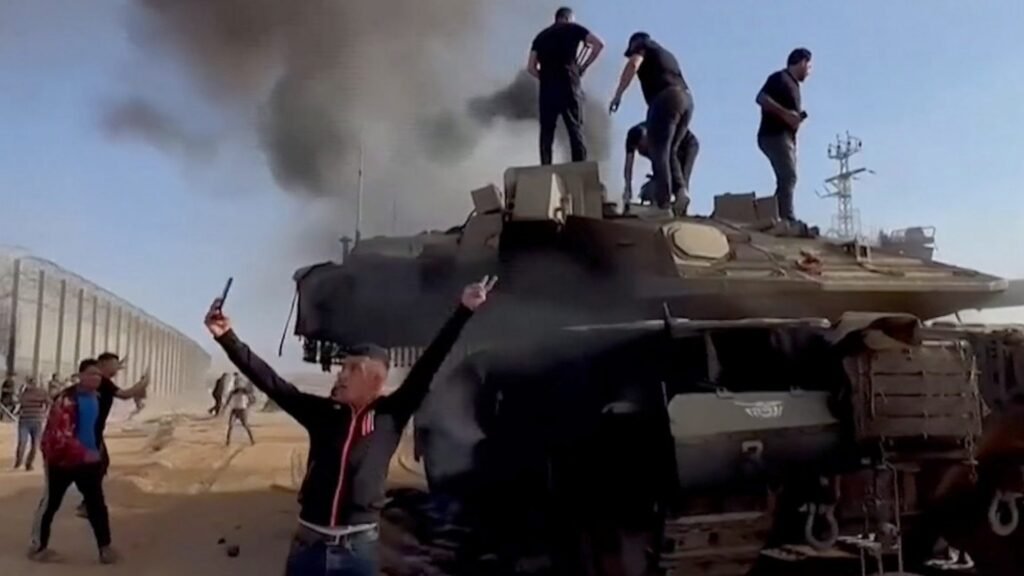
The Ceasefire Deal: What It Promised
Under the agreement, Hamas has reportedly agreed to release 20 surviving Israeli hostages, alongside the remains of 28 others who were killed during the October 7, 2023 attacks that reignited the conflict. In return, Israel is set to release nearly 2,000 Palestinian prisoners, including 250 serving life sentences and 1,700 detainees captured during recent military operations.
A key provision in the first phase requires Israel Defense Forces (IDF) to partially withdraw to a pre-defined “yellow line” within 24 hours after formal government ratification. Simultaneously, a minimum of 400 humanitarian aid trucks are expected to enter Gaza each day for at least five consecutive days — carrying food, medical supplies, and fuel to restore the enclave’s crumbling health infrastructure.
The deal also allows thousands of displaced Palestinian families from southern Gaza to return to Gaza City and its northern districts, areas that were nearly leveled during months of intense bombardment.
Despite these provisions, reports suggest that military operations have continued — albeit on a smaller scale — even as political leaders in Jerusalem prepared for cabinet approval of the truce.
Footage Sparks Global Outrage
The footage released by Reuters quickly went viral, drawing condemnation from humanitarian groups and diplomats across the world.
Human Rights Watch described the event as “a shocking violation of ceasefire intent,” while Amnesty International urged an immediate investigation.
“Firing on civilians — especially during the critical hours of ceasefire implementation — could amount to a war crime,” said Agnes Callamard, Secretary General of Amnesty.
The Israel Defense Forces (IDF) have not yet issued a detailed statement regarding the footage but told journalists that they are “reviewing operational reports from Deir al-Balah.”
In Tel Aviv, protests erupted late Thursday as some Israelis demanded accountability and clarity over whether the ceasefire would truly take effect.
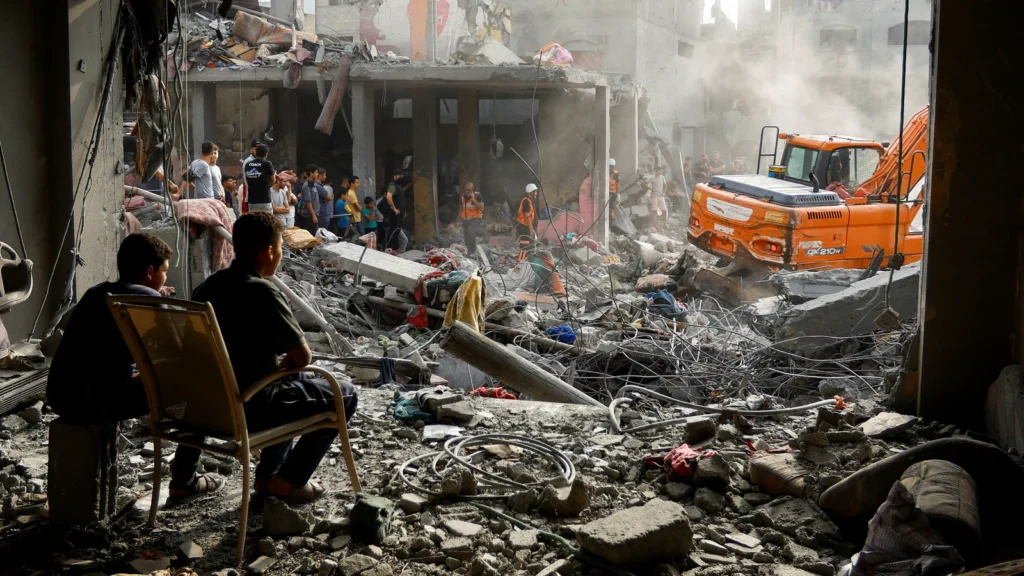
A Fragile Path Toward Peace
The ceasefire announcement had initially sparked cautious optimism after months of stalled negotiations mediated by Egypt and Qatar. The agreement marks the first formal step toward halting a war that has claimed tens of thousands of lives since 2023, displacing over 1.7 million people across Gaza.
However, analysts warn that both sides face significant political and military pressures. For Israeli Prime Minister Benjamin Netanyahu, the deal risks backlash from right-wing factions who oppose prisoner releases. For Hamas, compliance could weaken its control in Gaza if perceived as capitulation.
Aaron David Miller, a former U.S. peace negotiator, said the footage threatens to derail what was already a delicate process.
“Trust is the currency of any ceasefire,” Miller noted. “And when trust is broken in the first few hours, it becomes almost impossible to restore.”
Reactions From the Region
In Cairo, Egyptian Foreign Minister Sameh Shoukry reaffirmed his country’s commitment to supporting ceasefire monitoring mechanisms, calling the footage “deeply concerning.” Meanwhile, Qatari officials — key intermediaries in the talks — have called for restraint and verification before assigning blame.
At the United Nations, Secretary-General António Guterres said he was “deeply troubled” by reports of continued shelling, urging all parties to “respect the spirit and letter of the ceasefire.”
“The people of Gaza have suffered enough,” Guterres said, adding that humanitarian corridors must remain open and secure.
What Happens Next
The first phase of the ceasefire is expected to last 14 days, with subsequent phases dependent on adherence and progress in negotiations. If successful, phase two would include a longer-term truce and broader reconstruction initiatives across Gaza.
For now, the haunting footage from Deir al-Balah serves as a grim reminder of how fragile peace remains.
Even amid diplomatic breakthroughs and public promises, the sound of tank fire — echoing across a coastline where children were walking moments before — underscores that in Gaza, the road to peace is still paved with fear.
For more Update http://www.dailyglobaldiary.com
-

 Sports1 week ago
Sports1 week agoTottenham’s Champions League wake-up call… why Spurs must stop looking like a Europa League side
-
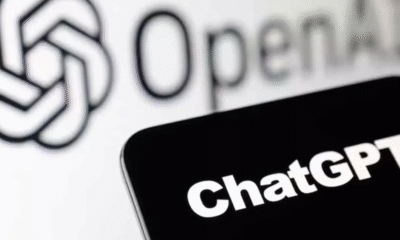
 Tech3 days ago
Tech3 days agoChatGPT Takes a Leap: Spotify, Canva, and More Integrated – Revolutionizing User Experience!
-

 Entertainment1 week ago
Entertainment1 week agoSurvivor Season 49 episode 2 shocker Kele tribe loses again and fans stunned by who went home
-
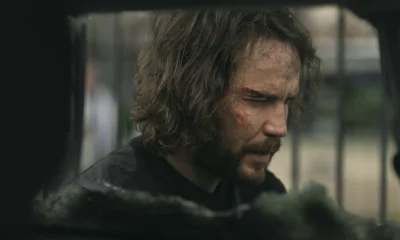
 Entertainment6 days ago
Entertainment6 days agoCharlie Hunnam reveals chilling transformation into serial killer Ed Gein for Ryan Murphy’s Monster… “I didn’t want to glamorize it”
-

 Sports1 week ago
Sports1 week ago‘Silent killer’ Cam Schlittler stuns Red Sox as Yankees rookie makes history with 12 strikeouts
-

 Sports6 days ago
Sports6 days agoShohei Ohtani finally pitches in MLB playoffs after 2,746 days… will this be the moment that defines Dodgers vs Phillies?
-

 Entertainment1 week ago
Entertainment1 week agoBill Burr shocks fans after Riyadh comedy festival set says Saudis are just like us
-
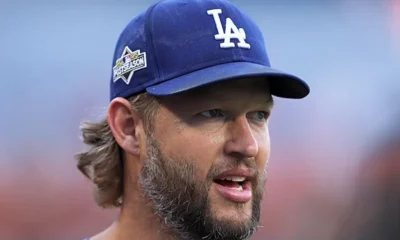
 Sports1 day ago
Sports1 day agoDodgers fans left heartbroken as Clayton Kershaw faces nightmare inning vs. Phillies — “No one wanted to see this…”


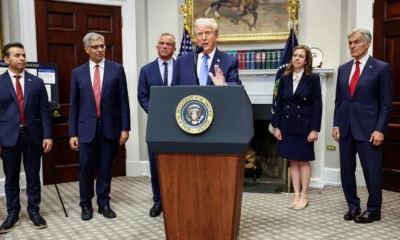

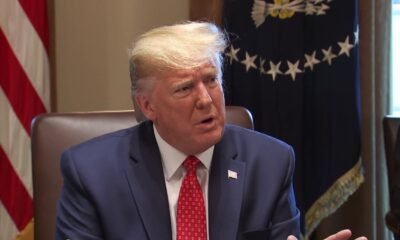

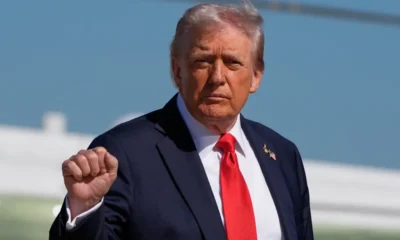



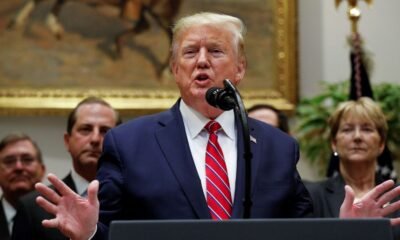

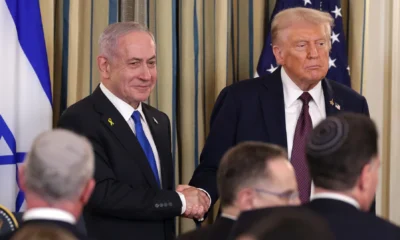















superph11
August 16, 2025 at 6:35 AM
Roulette’s randomness is fascinating – the math behind it is truly elegant! Seeing platforms like superph11 app cater to local preferences with options like GCash is smart. It’s about more than just games; it’s community & convenience!